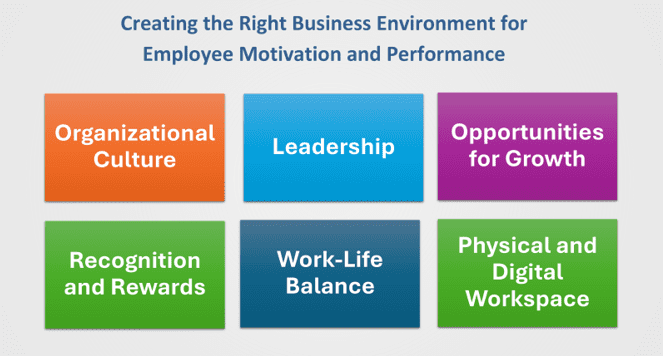
The hospitality industry has a concerningly high turnover rate, and things don’t seem to be improving. An astounding 42% of new employees in hospitality leave their jobs within just 90 days. More than 80% of hospitality operators are facing recruitment and retention challenges, and 46% of hospitality workers are only paid the National Minimum Wage – which further exacerbates the negative cycle. This isn’t a sustainable situation, and it’s leading to all kinds of problems. Luckily, some change appears to be on the horizon.
At a Hospitality Discussion event in September 2024, Travel Market Life gathered over 20 hoteliers and industry experts to delve into five core industry issues which are available through a five-part podcast series. In the third episode, we look at staffing in hospitality. And at the moment, industry leaders are particularly focused on changing employment regulations, and mental health support for hospitality staff.
The changing landscape of employment regulations
Employment laws are undergoing shifts that will protect hospitality workers. Many people agree this is much needed in the sector. There are six areas that are particularly noteworthy.
-
Tipping: New regulations will require businesses to consult with employees on how tips are distributed. While there is no set rule for dividing tips, employers must maintain transparency and keep accurate records to ensure fairness.
-
National Living Wage: This wage saw a significant increase in April, and further adjustments are on the horizon. The threshold for the higher rate has been lowered to include workers aged 21 and up, with plans to extend it to those as young as 18.
-
Flexible working: The right to request flexible working is now a day-one right, meaning employees can request more flexibility from the moment they start a job. Additionally, employees can make up to two requests per year, with employers required to respond within two months.
-
Unfair dismissal: Hospitality workers can now claim unfair dismissal from day one of employment. It was previously two years before a claim could be made. There will still be a probation period to test the suitability of employees.
-
Zero hour contracts: Exploitative zero hour contracts are likely to come to an end. This will prevent situations where employees are supposed to be available at all times, and have no control over the hours they work. Zero hours contracts will still be available as they suit some people, but they will be fairer to employees.
-
Sexual harassment: Emphasis will be put on the fact employers must take reasonable steps to protect their employees from harassment. If a claim is successful and it’s found the employer hasn’t taken reasonable steps, compensation could be increased by 25%.
All of these measures will help to protect hospitality workers, improve their working conditions, and hopefully help create environments where they actually want to work for longer than a few months. These regulatory changes emphasise the need for hospitality businesses to have robust HR frameworks in place. Updating policies, ensuring compliance, and clearly communicating new developments to staff will be key to navigating these shifts effectively.
“The new employment laws are crucial because they will protect the most vulnerable workers in our industry,” said Esmat Faiz, Associate Solicitor at Irwin Mitchell. But hotels need to roll out a new way of doing things purposefully. “Make sure you’ve got that regular training. Do additional training for managers so that they can spot things in the workplace, and they know how to deal with things. So if they see something, they know what to do. And one of the most important things is actually enabling that culture of openness, where employees feel that they’re able to call something out.”
Prioritising mental health in the workplace
Beyond regulatory concerns, mental health has emerged as a pressing issue within hospitality. Long hours, high pressure, and staff shortages have led to widespread burnout and dissatisfaction among workers. In a recent industry survey, work-life balance, financial worries, and mental health concerns were highlighted as major stressors for employees.
Training employees in mental health first aid is a critical step for businesses looking to foster a supportive work environment. However, it’s essential that these first responders have access to additional resources and support, as handling sensitive information can be emotionally taxing.
Providing access to mental health resources, such as counselling services, can make a significant difference to employee wellbeing. “We need to provide a safe and secure working environment for everybody in our business, and even prospective employees in the future,” said Jon Siberry, Group Revenue Manager of Sarova Hotels.
“It’s heartbreaking to see how many hospitality workers struggle with mental health issues, and it’s our duty to support them,” said Camilla Woods, Services Director for Hospitality Action, a charity that supports hospitality workers through programmes aimed at improving mental resilience. “If you have an employee assistance programme, work closely with your provider to look at utilisation engagement. It’s very easy to sign up to one of the programmes, but then not really drive utilisation within the organisation. And we find sometimes people just aren’t aware of all the support that is there for them.”
Helping hospitality workers
But what’s behind the mental health issues hospitality workers are facing? This comes back to long working hours, a lack of work-life balance, and a generally pressured workplace. Some of the new employment regulations should address these issues, but industry experts say there are other factors at play too.
“There are a lot of cases where people have been promoted, perhaps because people had left, or retaining staff necessitated promotion,” David Ohandjanian from UP Hotel Agency explained. “They went straight into a job they didn’t necessarily have the skills or experience for. It’s caused some tribunals.” Implementing mentorship or coaching programmes can help bridge this skills gap and provide managers with the tools they need to succeed. It’s a way of retaining and supporting staff.
Some key initiatives:
Going a little beyond National Living Wage could be a good strategy too. Competitive pay is crucial for attracting and retaining talent. Hotels that pay above-average wages have seen lower turnover rates compared to those that underpay. Ohandjanian said that paying slightly more upfront can result in long-term savings by reducing training costs and minimising disruptions caused by frequent staff changes.
Embracing digital tools to streamline operations can help alleviate some of the pressure on staff, making their jobs easier and improving overall efficiency. This includes allowing employees to work remotely where possible, which can contribute to a better work-life balance and a more motivated workforce.
Making improvements to the general operations and working conditions of a hotel all links directly back to improving the mental health of employees. Not only is this the right thing to do, it makes good business sense too.
“There’s an authentic, compassionate aspect of all of this,” explained Catt McLeod, Vice President Brand Development at Elegant Hotel Collection. “There is a direct commercial correlation between staff performance and staff content and the reviews that guests leave. It’s much more pleasurable to be served by happy, welcoming staff – because ultimately, authentic hospitality is at the heart of what we’re all trying to deliver.”
As the hospitality industry continues to evolve through these changes, businesses must prioritise their people strategies. This includes keeping policies up-to-date with the latest employment regulations, offering competitive wages, and providing support for mental health and wellbeing. The success of any hospitality business hinges on its ability to retain happy, motivated staff. By addressing the challenges of recruitment, retention, and staff wellbeing head-on, hospitality operators can create a positive work environment that not only attracts talent, but also delivers exceptional guest experiences.



















